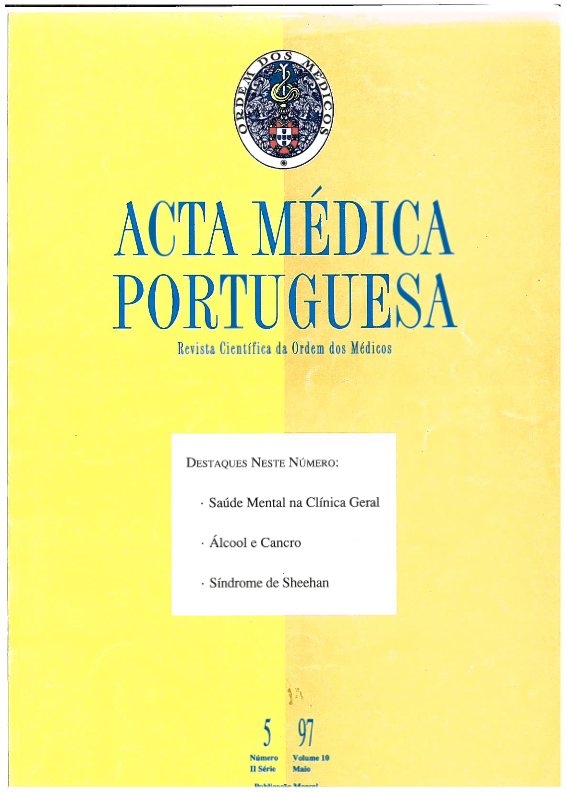Oclusão intestinal em doentes com cancro. Tratamento paliativo.
DOI:
https://doi.org/10.20344/amp.2428Resumo
The treatment of intestinal obstruction (IO) in patients with advanced or terminal cancer represents an open and widely discussed topic in clinical oncology practice. As surgical palliation is a complex issue, the decision to advance with surgery should be made in consultation with the patients and family members. The prognostic factors, mainly the survival time and the surgical risks can be considered guideline indicators. If there is any possibility that surgery will be of benefit, the patient should be treated with intravenous fluids and nasogastric suction while appropriate radiological investigations are performed. When surgical intervention is contraindicated, symptomatic medical treatment should be started through continuous subcutaneous administration of analgesic and antiemetic drugs. Minor episodes of vomiting may occur, which do not trouble patients since the most distressing symptom, nausea, can be controlled. Dehydration may be avoided with a liquid diet in small quantities. In this way, it is possible to manage patients with IO for several weeks without the need of nasogastric suction or intravenous fluids. Percutaneous gastrostomy, nasogastric tube, or hypodermoclysis may be necessary for a small number of patients, principally with high obstruction, who have refractory symptoms.Downloads
Downloads
Como Citar
Edição
Secção
Licença
Todos os artigos publicados na AMP são de acesso aberto e cumprem os requisitos das agências de financiamento ou instituições académicas. Relativamente à utilização por terceiros a AMP rege-se pelos termos da licença Creative Commons ‘Atribuição – Uso Não-Comercial – (CC-BY-NC)’.
É da responsabilidade do autor obter permissão para reproduzir figuras, tabelas, etc., de outras publicações. Após a aceitação de um artigo, os autores serão convidados a preencher uma “Declaração de Responsabilidade Autoral e Partilha de Direitos de Autor “(http://www.actamedicaportuguesa.com/info/AMP-NormasPublicacao.pdf) e a “Declaração de Potenciais Conflitos de Interesse” (http://www.icmje.org/conflicts-of-interest) do ICMJE. Será enviado um e-mail ao autor correspondente, confirmando a receção do manuscrito.
Após a publicação, os autores ficam autorizados a disponibilizar os seus artigos em repositórios das suas instituições de origem, desde que mencionem sempre onde foram publicados e de acordo com a licença Creative Commons









